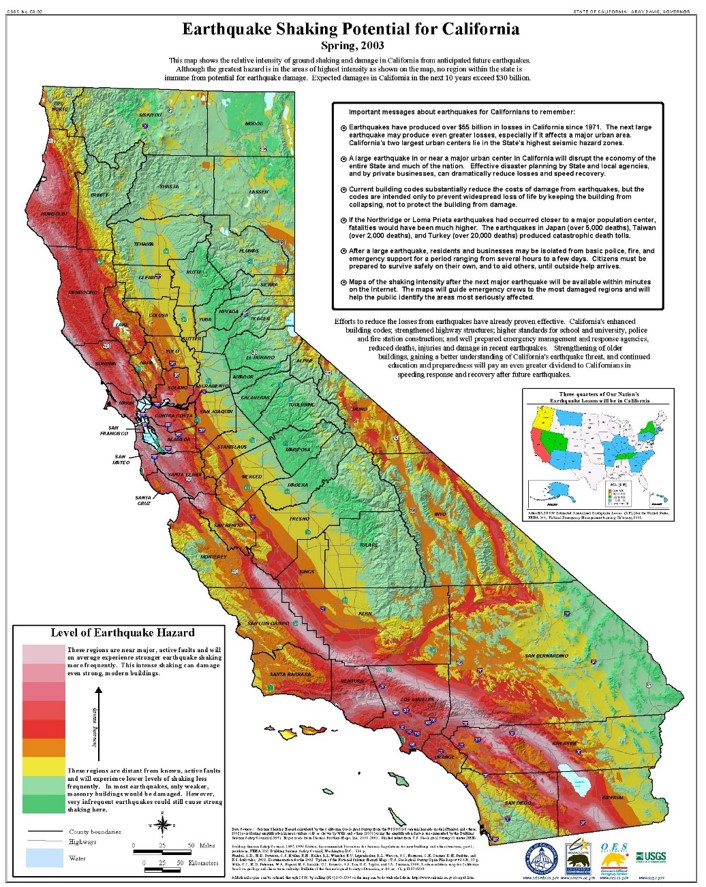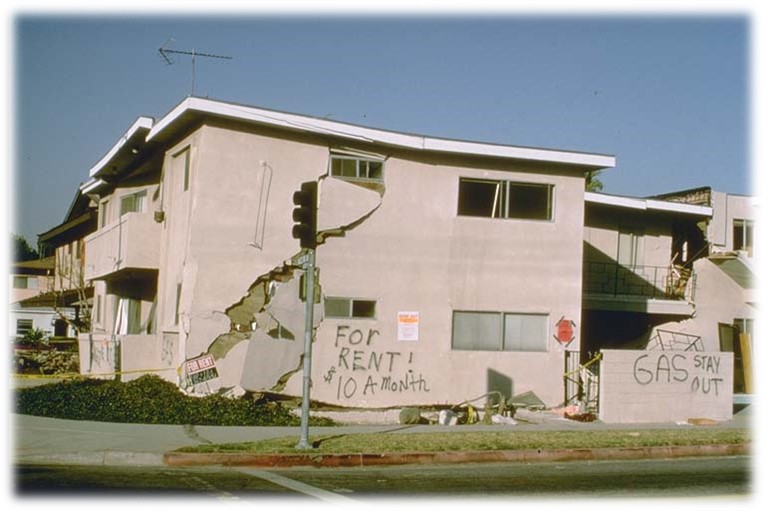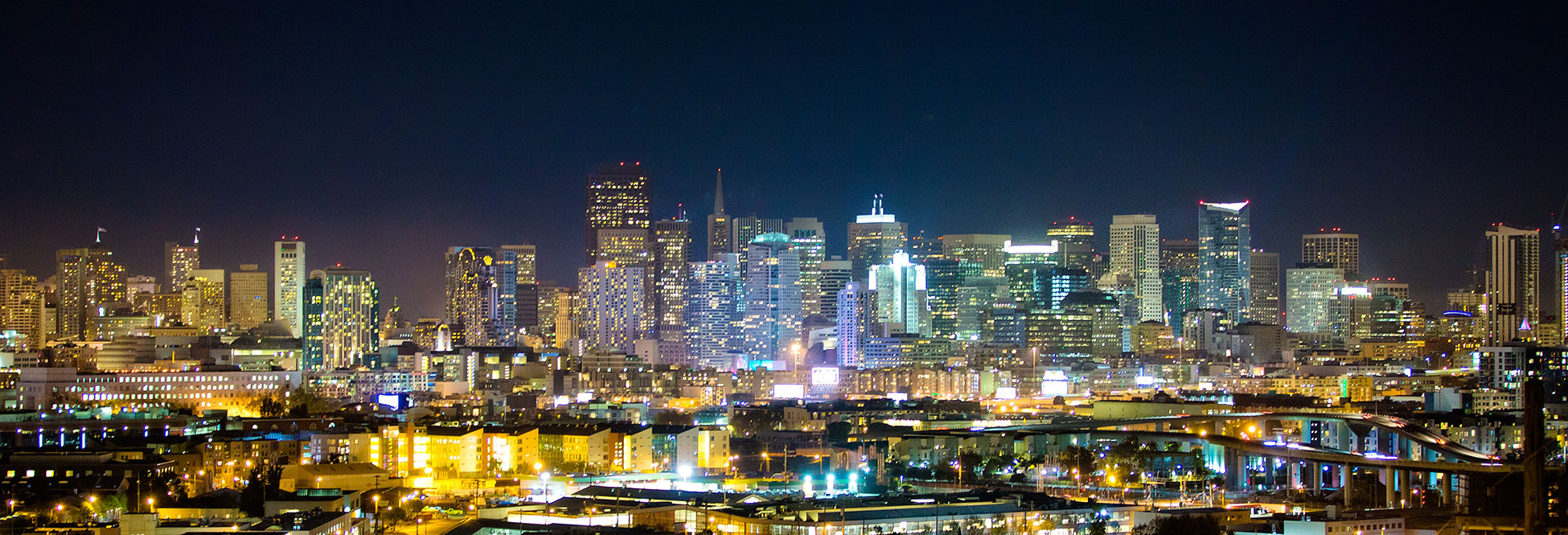Warning: Undefined array key 1 in /home/amiller8/public_html/wp-content/themes/bridge/templates/blog_single-loop.php on line 157
Deprecated: explode(): Passing null to parameter #2 ($string) of type string is deprecated in /home/amiller8/public_html/wp-content/themes/bridge/templates/blog_single-loop.php on line 157
Warning: Undefined array key 0 in /home/amiller8/public_html/wp-content/themes/bridge/templates/blog_single-loop.php on line 159
Deprecated: str_replace(): Passing null to parameter #1 ($search) of type array|string is deprecated in /home/amiller8/public_html/wp-content/themes/bridge/templates/blog_single-loop.php on line 159
03 Oct The next earthquake… it’s not a question of if, it’s a question of when!
It’s not a matter of “if”, it’s a matter of “when” the next BIG earthquake will strike. California has more than a 99% chance of having a magnitude 6.7 or larger earthquake…
Wait, doesn’t my apartment commercial insurance policy cover earthquake damage?
No, it’s a standard exclusion on most if not all commercial business owners policies.
Well, the government will help out if i’m not insured.
Probably not and if they do help, it will likely come in the form of a loan which will need to paid back.
Earthquake insurance rates are at an all-time low!
Speak to our earthquake insurance expert today for a complimentary quote on your rental property. To have the peace of mind today knowing your most prized assets are covered for tomorrow and consult with one of our insurance experts.
California Earthquake Facts:
- “The chance of another Northridge-size quake somewhere in California in the next 30 years is a near certainty, at above 99 percent, according to the report, which was released Tuesday (March 11).” Source: US Geological Survey
- Every year approximately 500 earthquakes occur in the state of California that are large enough to be felt. Source: San Diego Office of Emergency Service
Average Cost of Earthquake:
Source: California Geological Survey 2011
- We estimated the statewide average earthquake loss due to building damage to be approximately $2.8 billion per year, nearly 82% of this loss occurring in the top four (Metropolitan Statistical Area) MSAs with the highest estimated annual losses. These MSAs are Los Angeles-Long Beach-Santa Ana, San Francisco-Oakland-Fremont, Riverside-San Bernardino-Ontario, and San Jose-Sunnyvale-Santa Clara.
- The ten counties with the highest seismic risk measured by estimated annualized earthquake loss are Los Angeles, Alameda, Santa Clara, Orange, San Bernardino, Riverside, Contra Costa, San Francisco, San Mateo, and Ventura. Los Angeles County tops the list with an estimated annual loss of nearly one third of statewide loss and more than 3.5 times the loss in the 2nd-ranking county, Alameda.

What to expect during an earthquake:
Small or moderate earthquakes
- These can last only a few seconds and represent no emergency risk.
- If you are close to its source, you may hear a loud bang followed by shaking.
Large earthquakes
- These can last up to several minutes and constitute a natural disaster if its epicenter is near a densely populated area, or its magnitude sufficiently large for the region.
- The ground or floor will move, perhaps violently.
- Furnishings and unsecured objects could fall over or slide across the floor or be thrown with damaging force across the room.
- Unsecured light fixtures and ceiling panels may fall.
- Windows may break.
- Fire alarms and sprinkler systems may be activated.
- Lights and power may go off.
Take Action! Before the Earthquake
Before an Earthquake
- Inform your tenants:
- Obtain Earthquake kits
- Go through your home, imagining what could happen to each part of it, if shaken by a violent earthquake. Check off the items that you have completed in this list.
- Secure expensive or fragile items that if damaged would be a significant loss.
- Teach everybody in the family (if they are old enough) how to turn off the water and electricity.
- Clearly label the on-off positions for the water, electricity and gas.
- Repair loose roof shingles.
- Secure water heaters to wall studs or masonry using a bracing kit, to reduce the possibility of the heater falling and rupturing gas and water connections.
- Secure major appliances to walls, such as refrigerators.
- Keep flammable items and household chemicals away from heat and where they are less likely to spill.
Before an Earthquake
- Inform your tenants:
- Obtain Earthquake kits
- Go through your home, imagining what could happen to each part of it, if shaken by a violent earthquake. Check off the items that you have completed in this list.
- Secure expensive or fragile items that if damaged would be a significant loss.
- Teach everybody in the family (if they are old enough) how to turn off the water and electricity.
- Clearly label the on-off positions for the water, electricity and gas.
- Repair loose roof shingles.
- Secure water heaters to wall studs or masonry using a bracing kit, to reduce the possibility of the heater falling and rupturing gas and water connections.
- Secure major appliances to walls, such as refrigerators.
- Keep flammable items and household chemicals away from heat and where they are less likely to spill.
Before an Earthquake
- Consult a professional for additional ways to protect your home, such as bolting the house to its foundation and other structural mitigation techniques.
- If you live in an apartment block or a multi-story building, work with your building manager or condominium board to decide how best to “quake-safe” your unit. Seek advice from professionals (building engineers, emergency preparedness authorities) if you are unsure about what to do.
- Earthquake iPhone/Smartphone Application – Will alert before an earthquake (Quakefeed)
***Have an emergency kit that will sustain your tenants for at least 72 hours***
Discuss earthquake insurance with your insurance broker. Check your coverage – it could affect your financial ability to recover losses after an earthquake.
During an earthquake
- Wherever you are when an earthquake starts, take cover immediately. Move a few steps to a nearby safe place if need be. Stay there until the shaking stops.
- If you are indoors: “DROP, COVER AND HOLD ON”
- Stay inside.
- Dropunder heavy furniture such as a table, desk, bed or any solid furniture.
- Coveryour head and torso to prevent being hit by falling objects.
- Holdonto the object that you are under so that you remain covered. Be prepared to move with the object until the shaking has finished.
If you are outdoors
- Stay outside.
- Go to an open area away from buildings. The most dangerous place is near exterior walls.
If you are in a vehicle
- Pull over to a safe place where you are not blocking the road. Keep roads clear for rescue and emergency vehicles. Stay inside your vehicle.
- Avoid bridges, overpasses, underpasses, buildings or anything that could collapse.
During an earthquake:
AVOID the following in an earthquake
- Doorways. Doors may slam shut and cause injuries.
- Windows, bookcases, tall furniture and light fixtures. You could be hurt by shattered glass or heavy objects.
- Downed power lines – stay at least 10 meters away to avoid injury.
- Coastline. Earthquakes can trigger large ocean waves called tsunamis. If you are near a coastline in a high risk area during a strong earthquake, immediately move inland or to higher ground and remain there until officials declare the area safe.
After an earthquake:
- Stay calm. Help others if you are able.
- Be prepared for aftershocks.
- Listen to the radio or television for information from authorities. Follow their instructions.
- Put on sturdy shoes and protective clothing to help prevent injury from debris, especially broken glass.
- Check your home for structural damage and other hazards. If you suspect your home is unsafe, do not re-enter.
- Unplug appliances and broken lights to prevent fire starts when the power is restored.
- Do not light matches or turn on light switches until you are sure there are no gas leaks or flammable liquids spilled. Use a flashlight to check utilities and do not shut them off unless damaged. Leaking gas will smell like rotten eggs.
- If your home is equipped with natural gas: Call your gas provider immediately to report any concerns or if you smell gas (rotten egg smell). Shut off gas valve if you know how. Once the gas is turned off, don’t turn it back on. Only a licensed gas technician can turn the gas on safely.
- Do not flush toilets if you suspect sewer lines are broken.
- Use extreme caution with hazardous materials or spills. When in doubt, leave your home.
- Check on your neighbors after looking after members of your own household. Organize rescue measures if people are trapped or call for emergency assistance if you cannot safely help them.
- If you have pets, try to find and comfort them. If you have to evacuate, take them to a pre-identified pet-friendly shelter.
- Place a HELP sign in your window if you need assistance.
It’s not a matter of “if”, its a matter of “when”… Call GS Insurance Solutions to learn more: 650-282-3104 or by email: info@gsisol.com





Sorry, the comment form is closed at this time.